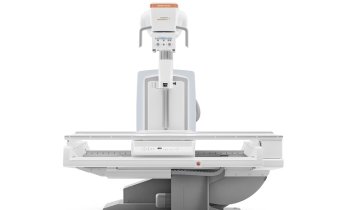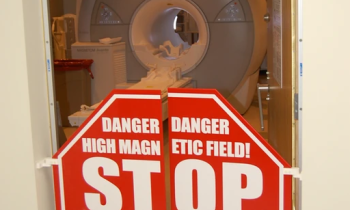Diverse views, similar aims
The 1st European Hospital Conference (EHC) will see three important organisations face up to their differences in what promises to be a great debate: During our interview with Dr João de Deus, President of the European Association of Senior Hospital Physicians (AEMH), he pointed out that AEMH, the European Hospital and Healthcare Federation (HOPE) and the European Association of Hospital Managers (EAHM) hold different views on European healthcare policy, which is why he believes the debate at this year’s 1st EHC will be ‘very lively’

‘The EHC will offer a great opportunity for our societies to debate fairly and squarely,’ Dr João de Deus explained, referring to the different views of the AEMH, EAHM and HOPE. ‘Hopefully,’ he added, ‘we will come to some shared conclusions.’
Since 1963, the AEMH has provided a platform for hospital department heads and other physicians, aiming for cooperation and communication between national member delegations to improve understanding of the different health systems and reduce hospital care inequalities within the EU Member States. Today the organisation is the umbrella of 17 national member delegations.
How does it accommodate the number of claims?
‘Due to the different healthcare systems in the European States, the organisational structures of public health and healthcare work can vary a lot -- we deal with different problems from different countries. First, this means that we must gain a deep understanding of the national mismatch in order to support the interests of our national delegations,’ Dr de Deus explained. Questions arising, he said, include: Is it a national health service? Is it a national or private insurance model? What are the working conditions for hospital doctors?
‘On the other hand, one of our struggles is trying to harmonise these different systems, because patient safety and quality of healthcare in a cross-border environment, where health professionals and patients can move freely within the EU, is a priority for all our policy areas.’ Generally, he explained, the AEMH divides its tasks in two -- supporting the positions of its national medical associations in relation to their own governmental healthcare policies, and the Association’s promotion of healthcare cooperation objectives on an international level within the framework of European Union.
Asked about any standards that could guarantee treatment quality and patient safety, Dr de Deus pointed out that there are three key strategies: ‘First, the introduction of risk management routines; for example, by developing guidelines and indicators as a part of a quality assessment system in the healthcare sector. Secondly, the involvement of senior physicians in hospital management is crucial. Doctors take responsibilities for many hospital decisions that influence performance and quality of care and therefore inter-relate with other areas in the hospital and human resources, financial success, healthcare policy and economics.
‘The third aspect is the evaluation of pre- and post-graduate education. Continuing professional development (CPD) is a major concern to our association with regard to quality assurance. Due to the increasing economic and financial difficulties in European hospitals, we observe a worrisome development in some EU member states, where primarily physician-directed tasks are delegated down the line to nurses and other non-physician staff members. Many governments support this task-shifting policy, because of the shortage of doctors in their countries and because nurses are much cheaper labour than highly trained physicians. However, we believe it’s a dangerous threat to patient safety, if healthcare workers with no deep medical understanding do, for example, surgical operations.’
Is medical training harmonised in the EU?
‘Unfortunately not,’ Dr de Deus regrets. ‘Whilst in the course of the Bologna Process the academic training in European medical faculties has reached a high international standard, we face a huge problem of harmonising medical training in the EU and therefore in a consistent recognition of professional qualifications in working life.
‘When it comes to specialisation, the countries have very different rules for training times, certification and validation processes. For instance, in some countries no official training programme exists for medical specialisation. This situation is unreasonable. Therefore, we have initiated a working group to deal with training, CPD and learning needs assessment.’
The migration of doctors within the EU also causes acute physician shortages in some regions. How could this trend be countered?
‘From an individual’s aspect, it’s of great importance that doctors as well as patients can move freely within the EU. But the reason why doctors migrate to other countries are much too often bad working conditions with long working hours and low payment. If European countries would assimilate much more in these points, the tendency of doctor shortages would decline. Good working conditions for doctors are also a major component in ensuring quality of care and patient safety. Excessive working time, poor or no rest after a long work period, understaffed teams, work overload, inadequate or outdated equipment, a lack of collaboration and communication among clinical staff, create not only a bad working atmosphere but also encourage sources of errors.
‘We deal with this problem also in the revision of the European Working Time Directive, in which, among other things, we demand the inclusion of a period of rest after a long period of work, exclusion of opt-out and the concept of “inactive period of work”. We have elaborated and sent to the European Commission and European Parliament some common documents with other European Medical Organisations (Standing Committee of European Doctors, the European Federation of Salaried Doctors and the Permanent Working Group of European Junior Hospital Doctors) stressing our position about this proposal of revision.
‘Another problem in this context is that up to forty percent of medical students, after acquiring their university degree, don’t choose a career in clinical medicine but go into research or free enterprise -- precisely because they are put off by the bad labour conditions in the physician’s profession.’
Do some EU countries have more commendable healthcare systems than others?
‘No system is perfect,’ Dr de Deus believes, adding, ‘but there are some better than others. France is certainly very advanced when it comes to unrestricted access to healthcare services. The patient can freely choose his doctor, specialist or hospital and the waiting lists are therefore much shorter than in other countries.
‘Luxemburgers are also very content with their statutory health insurance system. However, because this is a very small state it has some peculiarities that make it difficult to transfer to larger states.
‘Generally, the economic state of a country gives evidence about a good working healthcare system only to a limited extent – as recently could be seen in Portugal. In addition, nowadays we see an increasing number of liberal healthcare systems in Europe. In particular, in East European countries the privatisation of hospitals quickly progresses towards American-isational circumstances, which make hospital access for non-insured patients more difficult and jeopardises labour guarantees and the power of physicians in their workplace. We have to wait and see where this will lead in the future.’
30.08.2011









